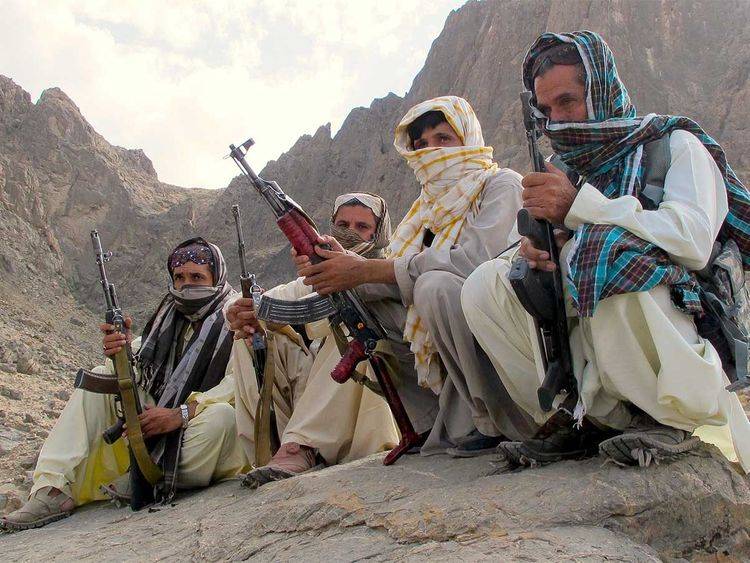
The US decision last week to designate the Balochistan Liberation Army (BLA) as a terrorist organisation was an acknowledgement of Islamabad’s cooperation in finding a political settlement to Afghanistan’s 18-year-long war with the Taliban, the TRT World says in a report.
“BLA is an armed separatist group that targets security forces and civilians, mainly in ethnic Baloch areas of Pakistan,” US officials said, as was included in the list of especially-designated global terrorists. .
The reaction of Pakistan was positive. “It is important that the perpetrators, organisers, financiers and external sponsors including those glorifying these acts of terror against Pakistan are held accountable and brought to justice,” said the Ministry of Foreign Affairs said in a statement.
For the US to designate a separatist ethnic group like the BLA under the presidential executive order 13224 is significant because the State Department rarely designates groups of a similar profile.
“The US has around 125 groups designated under this order, which came into effect post 9/11,” said Asfandyar Mir, a fellow at Stanford's Center for International Security and Cooperation.
“Of the 125 groups currently designated, only 28 are purely separatist/ethnic/nationalist, with no overt Sunni or Shia militant political claim. Since 2010, the State Department has designated around four such groups.”
This suggests that the designation is not just due to the terrorist activities of the BLA. There is more to this.
Analysts believe that the US administration wanted to acknowledge Pakistan’s important and positive role in facilitating the Afghan peace process ahead of Prime Minister Imran Khan’s Washington visit.
“Around 18 months ago, the US stopped airstrikes inside Pakistan and instead started targeting militants Pakistan wanted dead in Afghanistan,” Muhammad Amir Rana, PIPS Director, said.
“The US also started working with Pakistani officials on the Afghan peace process while keeping quiet on the Pakistani military's meddling in domestic politics. More recently, the US didn’t try to block aid to Pakistan from Arab states and the IMF.”
He explained further that in return, Pakistan has pressured the Afghan Taliban on peace talks. Pakistan has also curtailed the activities of some India-focused jihadists groups, such as Jaish-e-Muhammad (JeM) and Jamaat-ud-Dawa (JuD).
The designation comes two months after China dropped its objections to a Security Council resolution against JeM’s head Masood Azhar, naming him a global terrorist.
“The US needs better relations with China on counterterrorism. The terrorist challenge from Afghanistan is likely to increase for the US, especially in case of a military drawdown from there. China will have an influence in a post-US Afghanistan and on Pakistan,” Mir said.
“BLA is an armed separatist group that targets security forces and civilians, mainly in ethnic Baloch areas of Pakistan,” US officials said, as was included in the list of especially-designated global terrorists. .
The reaction of Pakistan was positive. “It is important that the perpetrators, organisers, financiers and external sponsors including those glorifying these acts of terror against Pakistan are held accountable and brought to justice,” said the Ministry of Foreign Affairs said in a statement.
For the US to designate a separatist ethnic group like the BLA under the presidential executive order 13224 is significant because the State Department rarely designates groups of a similar profile.
“The US has around 125 groups designated under this order, which came into effect post 9/11,” said Asfandyar Mir, a fellow at Stanford's Center for International Security and Cooperation.
“Of the 125 groups currently designated, only 28 are purely separatist/ethnic/nationalist, with no overt Sunni or Shia militant political claim. Since 2010, the State Department has designated around four such groups.”
This suggests that the designation is not just due to the terrorist activities of the BLA. There is more to this.
Analysts believe that the US administration wanted to acknowledge Pakistan’s important and positive role in facilitating the Afghan peace process ahead of Prime Minister Imran Khan’s Washington visit.
“Around 18 months ago, the US stopped airstrikes inside Pakistan and instead started targeting militants Pakistan wanted dead in Afghanistan,” Muhammad Amir Rana, PIPS Director, said.
“The US also started working with Pakistani officials on the Afghan peace process while keeping quiet on the Pakistani military's meddling in domestic politics. More recently, the US didn’t try to block aid to Pakistan from Arab states and the IMF.”
He explained further that in return, Pakistan has pressured the Afghan Taliban on peace talks. Pakistan has also curtailed the activities of some India-focused jihadists groups, such as Jaish-e-Muhammad (JeM) and Jamaat-ud-Dawa (JuD).
The designation comes two months after China dropped its objections to a Security Council resolution against JeM’s head Masood Azhar, naming him a global terrorist.
“The US needs better relations with China on counterterrorism. The terrorist challenge from Afghanistan is likely to increase for the US, especially in case of a military drawdown from there. China will have an influence in a post-US Afghanistan and on Pakistan,” Mir said.
